News
Court issues arrest warrant for impeached President Yoon of South Korea
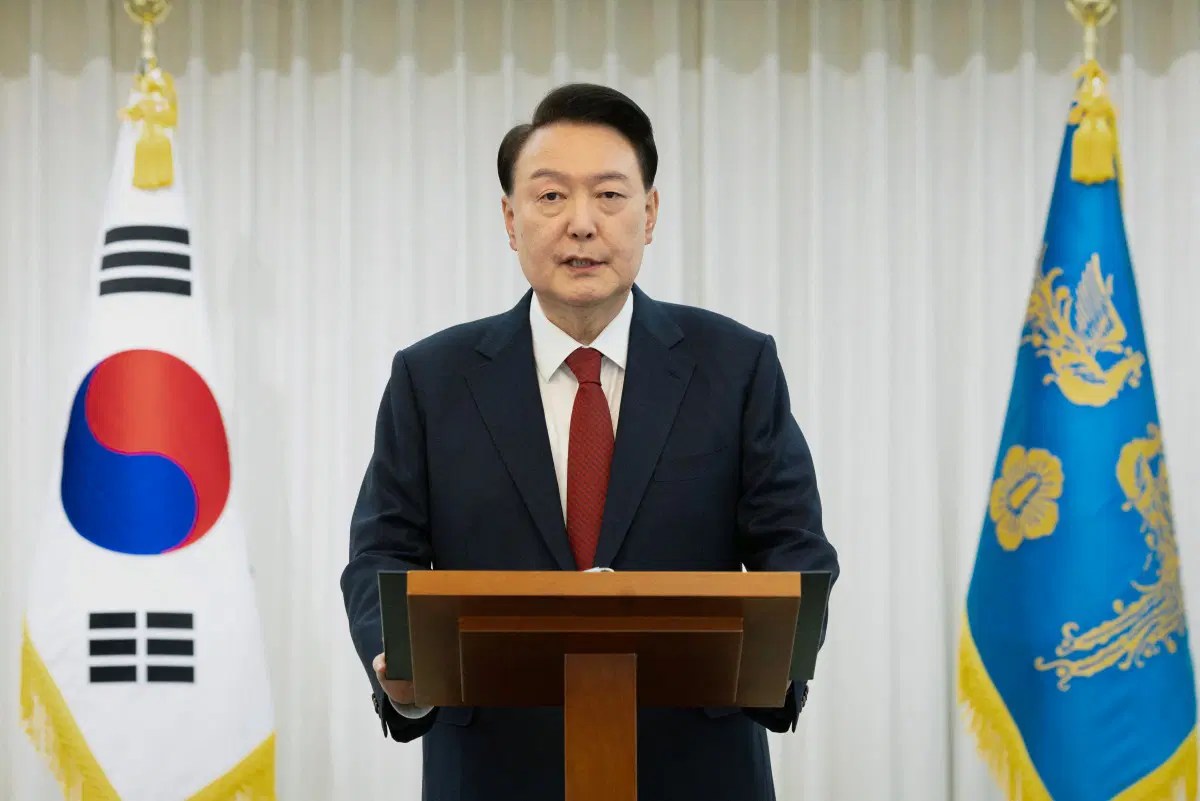
A South Korean court has issued an arrest warrant for impeached and suspended President Yoon Suk Yeol, investigators said on Tuesday, over his short-lived bid to impose martial law.
Yoon briefly suspended civilian rule on December 3, plunging South Korea into its worst political crisis in decades.
He was stripped of his presidential duties by parliament over the action but a constitutional court ruling is pending on whether to confirm the impeachment.
“The arrest warrant and search warrant… were issued this morning,” the Joint Investigation Headquarters said in a statement.
The conservative leader faces criminal charges of insurrection, which could result in life imprisonment or even the death penalty.
Investigators probing Yoon over his declaration of martial law requested the warrant on Monday after he failed to report for questioning a third time.
“There is a concern that the individual may refuse to comply with summons without justifiable reasons,” a Corruption Investigation Office official told reporters on Tuesday.
The official said there was “sufficient probable cause” to suspect the commission of a crime, with the warrant valid until January 6 and Yoon likely to be held at the Seoul detention centre.
Yoon’s lawyer called the warrant “illegal and invalid”, saying investigators lacked the authority to probe the president.
“The arrest warrant and search and seizure warrant issued at the request of an agency without investigative authority are illegal and invalid,” a statement sent to AFP by lawyer Yoon Kab-keun said.
News
FCTA to expend N39bn to rehabilitate Abuja International Conference Centre – Wike
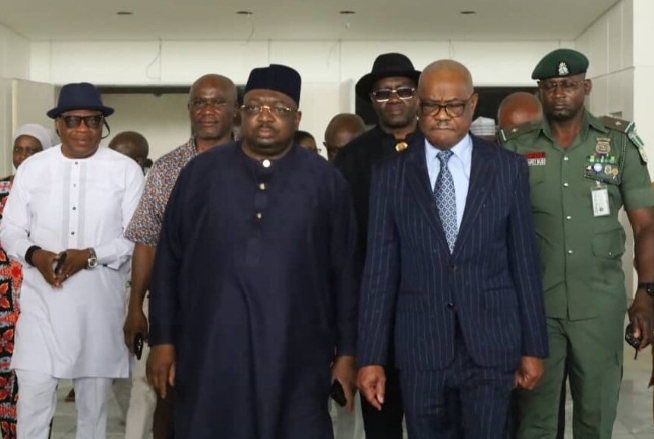
By Kayode Sanni-Arewa
The Minister of the Federal Capital Territory (FCT), Nyesom Wike, has said the FCT Administration is expending N39 billion on the rehabilitation of the Abuja International Conference Centre.
Wike revealed this in Abuja on Wednesday, when he inspected the ongoing renovation of the centre being executed by Julius Berger.
The minister recalled that President Bola Tinubu had described the centre as an eyesore when he inaugurated the sixth Legislature of the ECOWAS Parliament on April 4, 2024.
He added that, thereafter, Tinubu directed that the centre should be shut down and mandated the FCTA to carry out a total rehabilitation of the conference centre.
Following the directive, Wike on April 8, 2024, ordered the suspension of all activities at the centre to enable the contractor to begin the rehabilitation.
He explained that the rehabilitation was necessary to give the country a befitting international conference centre
He explained that the poor state of the centre had reduced it to a mere conference centre and not an international centre.
“We are giving Nigerian the best and we thanked President Bola Tinubu for supporting the rehabilitation of the conference centre,” he said.
Wike, who said that the rehabilitation had reached between 70 and 80 per cent completion, expressed confidence that the facility would be ready for public use in May.
According to him, all the materials needed to complete the rehabilitation have been imported and are on ground.
“I am happy with what is going on. The contractor had promised to complete the renovation at the cost of N39 billion.
“I can say that they are between 70 to 80 per cent completion and they have assured us that the project would be completed and hand over to us in May.
“We are happy with the pace of work, and I am confident that in May, the centre will be one of the projects that will be inaugurated to celebrate Tinubu’s 2nd year in office.”
News
Anger in Edo as protesters hit street over Natasha’s suspension
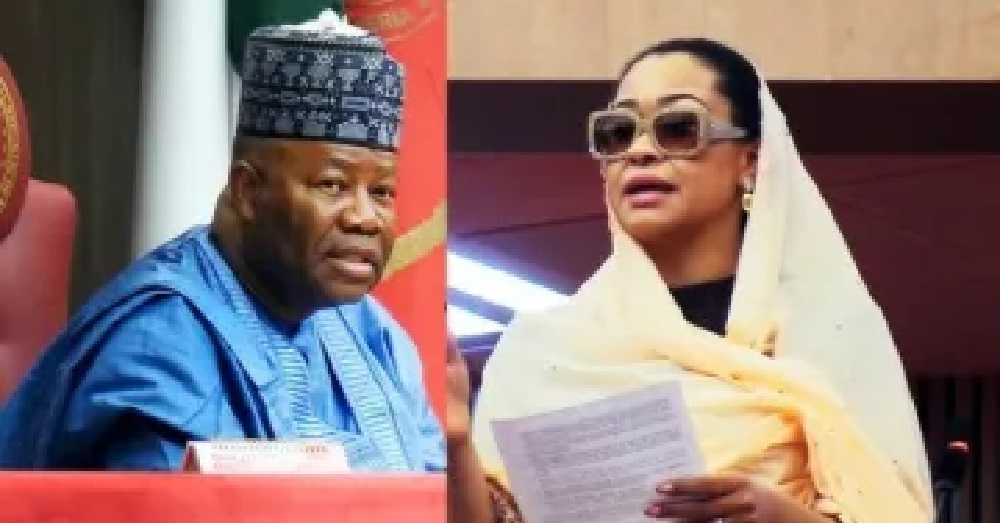
A wave of anger swept through Edo State on Wednesday as hundreds of protesters, including members of Civil Society Organisations (CSOs), women’s groups, and concerned citizens, took to the streets in a fiery demonstration against the six-month suspension of Senator Natasha Akpoti-Uduaghan.
Chanting slogans and brandishing placards, the enraged crowd marched through major landmarks, including the Edo State House of Assembly, Government House, and the secretariat of the State Council of the Nigeria Union of Journalists (NUJ).
They condemned what they described as a blatant act of injustice, misogyny, and an attempt to silence the senator after she accused Senate President Godswill Akpabio of sexual harassment.
Addressing the gathering, Grace Ese Obakina, who read from a petition directed to the Speaker of the State House of Assembly, the Governor, and the NUJ, decried the suspension as an assault on justice and workplace safety.
She argued that the National Assembly’s decision to punish Senator Akpoti-Uduaghan without first addressing her allegations was nothing short of a cover-up.
“We stand against this disgraceful act of intimidation,” Obakina declared. “Senator Akpoti-Uduaghan’s petition accused the Senate President of sexual harassment, yet instead of conducting an impartial investigation, they suspended her for six months under the guise of breaching Senate rules. This is not just an injustice to her but an attack on every woman in Nigeria.”
The protesters demanded an independent probe into the senator’s claims, vowing not to relent until justice was served.
“Sexual harassment and misogyny cannot be swept under the rug. We demand transparency and accountability. The days of silencing women who dare to speak out are over!” Obakina thundered.
At the Government House, the Deputy Chief of Staff, Dr. Pius Alile, who received the protesters on behalf of Governor Monday Okpebholo, assured them that their grievances would not be ignored.
“The governor is a strong advocate for gender equality. Your concerns have been noted, and appropriate action will be taken,” he promised.
Similarly, at the State House of Assembly, the Speaker’s media aide, Ivy Adodo-Ebojiele, vowed that the matter would not be buried.
“The issue of Natasha is one issue too many,” she said. “The Speaker and the Assembly will ensure that justice is served. This will not be swept under the carpet.”
With emotions running high and pressure mounting, all eyes are now on the authorities to see if they will take a stand for justice—or allow another voice to be silenced in the corridors of power.
News
ICPC arraigns immigration officer over N17.6m multi-agency alleged fraud

The Independent Corrupt Practices and Other Related Offences Commission has arraigned an Assistant Superintendent of Immigration with the Nigerian Immigration Service, Abubakar Aseku for allegedly receiving salaries from two additional government agencies while still employed by the NIS.
Aseku was brought before Justice Binta Dogonyaro of the Federal Capital Territory High Court, Apo, Abuja, on Tuesday, facing a nine-count charge bordering on abuse of office and corruption.
In a statement on Wednesday, by the ICPC’s spokesman, Demola Bakare, the NIS officer allegedly received N4.2m in salaries from the Nasarawa State Ministry of Education, Science and Technology in 2015 while serving as a school teacher despite being an active officer of the NIS.
Bakare also said Aseku was accused of illegally drawing N13.4m in salaries from the Department of Petroleum Resources between 2018 and 2019 while still under the employment of the Immigration Service.
Bakare added that as a Pay Officer with the NIS, Aseku allegedly facilitated the payment of N4.7m in salaries to seven individuals who were neither employees of the NIS nor on its payroll.
One of the charges contained in the statement read in part, “That you, Abubakar Mohammed Aseku, between October 2018 and October 2019, in Abuja, while serving as an Assistant Superintendent Immigration Officer, used your position to confer corrupt advantage upon yourself by receiving a total sum of N13,400,889.90 in salaries from the Department of Petroleum Resources, while concurrently employed by the Nigerian Immigration Service, thereby committing an offence contrary to and punishable under Section 19 of the Corrupt Practices and Other Related Offences Act, 2000.”
Bakare said Aseku pleaded not guilty to all charges.
He said his counsel, Basil Hemba, urged the court to uphold the bail conditions previously granted by another FCT High Court in Maitama.
Bakare said Justice Dogonyaro agreed to maintain the existing bail terms and adjourned the case to April 29, 2025, for further hearing.
-

 News22 hours ago
News22 hours agoVideo: WATCH tearful Senator Natasha reporting Akpabio to IPU
-

 News17 hours ago
News17 hours agoAuthentic Lawmakers Resume Sitting At Rivers Assembly After Shutting Out Governor Fubara From Presenting 2025 Budget
-
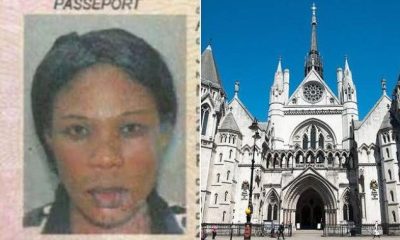
 News18 hours ago
News18 hours agoNigerian ‘Dead Woman’ Appears In Court To Reclaim £350k London Home From Scammer
-

 News12 hours ago
News12 hours agoFubara’s Letter To Rivers Assembly Over S’Court Verdict Is ‘Useless’-Wike declares
-

 News16 hours ago
News16 hours agoSAD! Angry fan k!lls female influencer during live stream
-
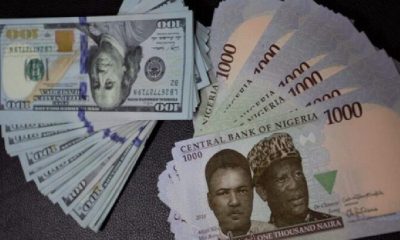
 Economy21 hours ago
Economy21 hours agoSEE Black Market Dollar (USD) To Naira (NGN) Exchange Rate
-

 News13 hours ago
News13 hours agoINSECURITY! Police rescue nine abducted surveyours after payment of N20m
-

 News13 hours ago
News13 hours agoActor’s Wife Nabbed For Allegedly Paying Assassin to K!ll Him


















